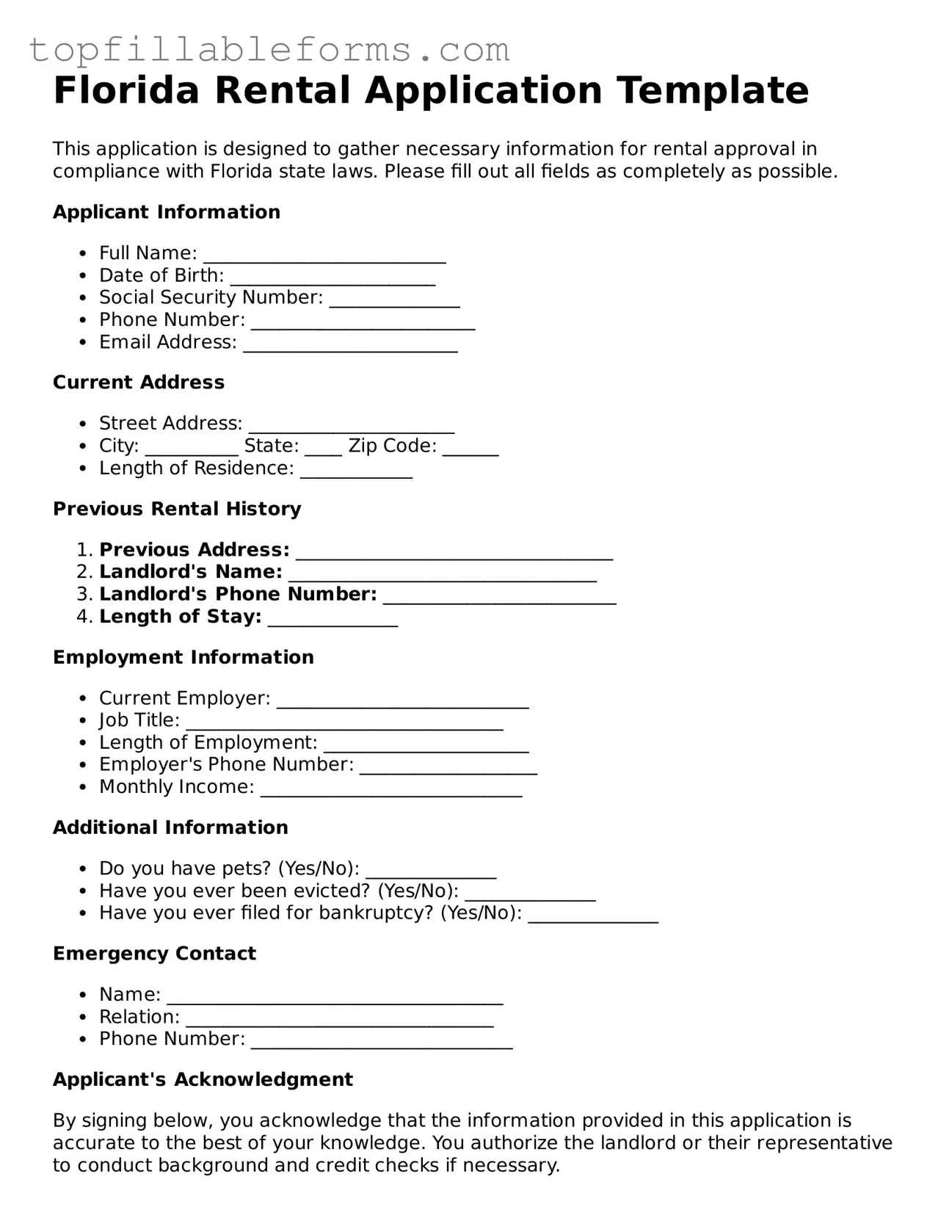Attorney-Verified Rental Application Template for Florida
The Florida Rental Application form is a document used by landlords to screen potential tenants. This form collects essential information about the applicant, including personal details, rental history, and financial background. Completing this application is a crucial step in the rental process, helping landlords make informed decisions.
Open Rental Application Editor Here

Attorney-Verified Rental Application Template for Florida
Open Rental Application Editor Here
Finish the form now and be done
Finish your Rental Application online by editing, saving, and downloading fast.
Open Rental Application Editor Here
or
▼ PDF File
